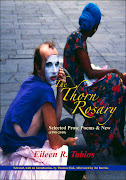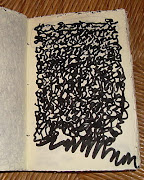Well, how important is it anyway to conduct criticism using core values to Filipino poetry? I'm still figuring that out. But, just yesterday, I picked up a new poetry collection by a Latino poet and another Latino poet-blurber praised it as, among other things, "Whitmanic." I've been honored to have that ascribed to my work as well -- but is it better to invoke Whitman or Kapwa? And what if I, as the author, says she feels the latter is more appropriate?
But what is the point of criticism anyway? It's different from the actual art, yes? And it has separate goals from art-making, yes? And such goals often include socio-political aspects like drawing more attention to certain cultures not part of mainstream? If, as I have done, I've edited or published anthologies that draw attention to Filipino literature, why also wouldn't I use more indigenous values in criticism--not just to draw attention to the lovely literature but to address-by-diluting the Western gaze on the work? Rather than looking at Filipino art, the criticism's structure, if using appropriate indigenous values, organically presents the art so that it's not just going to be an experience of from outside-in but also from inside-out.
(What if the Latino poet-blurber had referenced Neruda instead of Whitman? Isn't using a white male reference -- even when appropriate -- by the terms of criticism rather than art-making bow down to commercialism? As in, that poetry book is not just for the Latino community but for everyone? I'm reminded now of a presentation at the Literary Panel of the conference where the academic Marie Therese Sulit had noted how Filipina-Australian writer Merlinda Bobis' short collection, The Kissing, was first entitled The White Turtle when it was previously published in Australia. The switch to a more commercially palatable--i.e. romantic--term can be considered a marketing-based decision. Unfortunately, that decision also de-emphasized "The White Turtle" which was based on an indigenous Filipino myth.)
And I also came across Barbara Jane Reyes' reference to what I'm exploring on this blog (my five millionth blog, I know), specifically this paragraph:
One thing I appreciate about Eileen’s exploration of this babaylan and kapwa poetics is this delineation of indigeneity and tribalism. My questions: whether there can be an indigenous consciousness or world view which does not translate into appropriation of tribal gear/artifacts/titles, judging and disparaging others from an elevated or “transcendent” position because they choose to exist outside of our social and experiential contexts. Can we live our westernized, urban, professional lives with indigeneity as one lens through which we view the world and interact with one another.
And one reason I am looking at Filipino psychology is that what I want to do with my version of criticism is to rely on knowing-as-feeling, which is such an ingrained trait in Filipino culture, and frankly something I already practice in doing poetry reviews for Galatea Resurrects (but because they're not typical reviewing, I call them "engagements" versus "reviews" with the latter's attendant contextual baggage). (If knowing-as-feeling sounds flakey to you, it's really just phenomenology, okay?)
As a former banker for three multinational banks while residing in New York City, I can also say that what I'm calling indigenous values here does not conflict with living "westernized, urban, professional lives". Folks with highly-sensitized intuitive capabilities (whether or not such talents were articulated as "indigenous") are often the ones higher up professional ladders.
Have you observed how none of what I've mentioned so far require the "appropriation of tribal gear/artifacts/titles". As I've already joked with others, me wearing tribal gear means donning a table cloth and I think I'll pass on food stains as my necklaces. But I get what Barbara means about "titles"--this indigenous stuff seems to make certain people pop out of the woodwork presenting themselves as leaders of sorts. (That's why, in my first post, I made sure to say I don't claim to be a "Babaylan" but am just practicing Babaylan[-inspired] poetics. I don't want any of you trudging up to mi casa now; I ain't looking for followers!*)
For my version of indigenous literary criticism to work in the future, I think I'd need to tap into that energy from mythic, pre-colonial times. One can study indigenous culture, or even the tenets of Sikolohiyang Pilipino, but that's not sufficient, I suspect for creating the body of criticism I'm hoping to achieve. Vessel-izing that energy, to me, is going to be the key. It is about the body--the body needs to be involved. With hindsight, I think Poetry has been my preparation for this path.
Great--that clears things up, right?!
Well, no. But this blog is just a notebook--I'll post this blather anyway.
__________
* Oh aso poop. Did I just tell y'all not to trudge up to mi casa? Such a potential bounty of home-made cooking I could have received, yes...?!



No comments:
Post a Comment